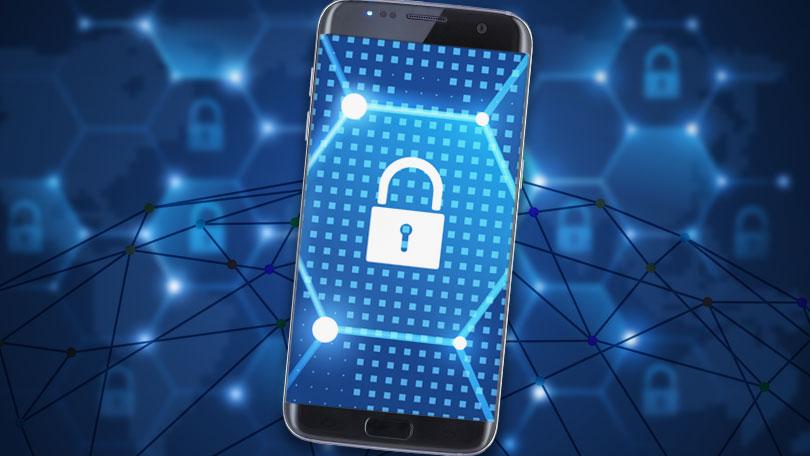Shopping for a VPN app? Read this.

February 22, 2018
by Andrea Arias
Attorney, Division of Privacy and Identity Protection
You probably know by now that using your mobile device on the public Wi-Fi network of your local coffee shop or airport poses some risk. Public networks are not very secure – or, well, private – which makes it easy for others to intercept your data. So, what can you do to keep your mobile data private and secure while out and about? Some consumers have started using Virtual Private Network (VPN) apps to shield the information on their mobile devices from prying eyes on public networks. Before you download a VPN app, you should know that there are benefits and risks.
VPN app basics
How do VPN apps work? When you use a VPN app, data sent from your phone – be it your browsing data or the apps you are using – is routed through servers located elsewhere. A VPN app can make traffic from your phone to a website you visit appear to come from a server operated by the VPN provider, rather than directly from your phone. Some VPN apps also encrypt the data sent between your phone and the VPN server. So, for example, say you are using a public Wi-Fi network that isn’t secure – such as a network that allows anyone to use it, even if they don’t have a password. Other people on the same network can see your traffic. But when you use a VPN app that encrypts the data, anyone monitoring your network connection only sees gibberish – even if the particular site you are visiting doesn’t itself employ encryption.
Why would someone use a VPN app? VPN apps tout a variety of uses. Not only do some VPN apps promise to keep your information secure on public networks, but some also claim they will keep your information private from advertisers and other third parties. And because VPN apps route your traffic through another network, they can make it appear as if your traffic is coming from somewhere else. This is similar to how a company might use a VPN to allow employees to use their work computer as if they were on the company’s network, even while they’re on the road.
What are some privacy and data security concerns about using a VPN app? First, you should be aware that when you use a VPN app, you are giving the app permission to intercept all of your internet traffic. You don’t want to grant such permission lightly. Also, a group of technical researchers who studied almost 300 VPN apps found (link is external) potential privacy and security risks with some VPN apps. According to the study, for example, some VPN apps did not use encryption; some requested sensitive, and possibly unexpected, privileges; and some shared data with third parties for purposes such as injecting or serving ads, or analyzing the data to see how people are using a particular site or service.
Given these findings and the considerable trust you must place in a VPN app with your traffic, here are some things to consider before you download a VPN app.
Before you download a VPN app
Research the VPN app before you use it. You are trusting a VPN with potentially all of your traffic. Before you download a VPN app, learn as much about the app as you can. Look up outside reviews from sources you respect. You can also look at screenshots, the app’s description, its content rating, and user reviews, and can do some online research on the developer. The fact that an app promises security or privacy does not necessarily make it trustworthy.
Carefully review the permissions the app requests. Apps will present the permissions they request on their app store page, during installation, or at the time they use the permission. It’s useful information that tells you what types of information the app will access on your device in addition to your internet traffic. If an app requests particularly sensitive permissions (reading text messages, for example), consider whether the permission makes sense given the app’s purpose and whether you trust the app developer with that access.
Know that not all VPN apps actually encrypt your information. Some VPN apps use protocols that do not encrypt your traffic, or encrypt only some of your traffic. Outside reviews from sources you respect might provide more information about a particular app’s use of encryption.
A VPN app generally isn’t going to make you entirely anonymous. Instead, the app will typically obscure the content of your traffic from your internet service provider or public Wi-Fi provider, shifting trust from those networks to the VPN app provider. In addition, sites you visit may be able to determine that you are using a VPN app, and can still use any identifying information you directly share with them (for example, filling out a form with your email address) to track you.
VPN apps may share your information with third parties. Many VPN apps are free because they sell advertising within the app, or because they share your information with (or redirect your traffic through) third parties. If you are using the VPN app to keep your traffic private, make sure you review the VPN app’s terms and conditions and its privacy policy to determine if it shares information with third parties such as advertisers, and if so, what information it shares.
https://www.consumer.ftc.gov/blog/2018/02/shopping-vpn-app-read